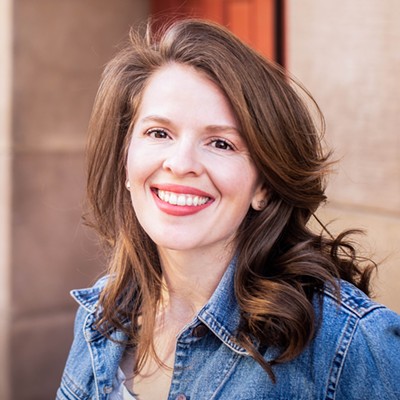The People's Champion, the Louisville Lip, the Greatest — whatever you called him, Muhammad Ali was one of the world's most famous athletes. Born Cassius Marcellus Clay Jr., the internationally renowned boxer died at the age of 74 on Friday, June 3, in Scottsdale.
Hailing from Louisville, Kentucky, Ali was known for major boxing victories like 1971's Fight of the Century, 1974's Rumble in the Jungle, and 1975's Thrilla in Manila. He was also a well-known conscientious objector during the Vietnam War and a bestselling author, and it was huge news in 1984 when he was diagnosed with Parkinson's disease.
Given his fame, we don't have to tell you what an icon he was, but we can pass along some life lessons he taught us throughout his impressive career.
Be Quotable
Some of the younger ones out there might be more familiar with Ali’s memorable quotes than his career. One of the best trash talkers in history, Ali is known for nuggets like, "If you even dream of beating me, you better wake up and apologize," and "Not only do I knock 'em out, I pick the round," and of course, "Float like a butterfly, sting like a bee. The hands can't hit what the eyes can't see."
Do You
It's well known that the fighter formerly known as Cassius Clay joined the Nation of Islam early in his career (later converting to Sunni Islam, and eventually to Sufism), and changed his name to Muhammad Ali in 1964. And he had every right to — duh.
Don't Set Limits
It wasn’t enough for Ali to be one of the world's greatest athletes, and why should it have been? He also published The Greatest: My Own Story in 1975, and followed it up with The Soul of a Butterfly: Reflections on Life's Journey in 2004 with his daughter Hana Yasmeen Ali.
He also dabbled in acting, staring as himself in the 1977 biopic The Greatest and the 1979 TV movie Freedom Road, and Ali even had a cameo on Diff'rent Strokes. What's more, he released a spoken-word album, I Am the Greatest, in 1963, and starred in the short-lived Broadway musical Buck White in 1969.
Ali also helped to accept the Oscar with George Foreman for When We Were Kings, a documentary about the aforementioned Rumble in the Jungle fight.
Stand Up for Your Beliefs
In 1967, Ali rejected induction into the U.S. Army during the Vietnam War, citing his religion and saying, "I ain't got no quarrel with those Vietcong." He was charged with evading the draft, which led to arrest, fines, and being stripped of his heavyweight title.
But Ali took the battle all the way to the Supreme Court, and his convictions were overturned in 1971. As a result, he became a voice for other conscientious objectors.
Confidence is King
We'll leave you with yet another Ali-ism. Imagine having this much confidence at 25.
"When I'm gone, boxing will be nothing again," he once said. "The fans with the cigars and the hats turned down'll be there, but no more housewives and little men in the street and foreign presidents. It's goin' to be back to the fighter who comes to town, smells a flower, visits a hospital, blows a horn, and says he's in shape. Old hat. I was the onliest boxer in history people asked questions like a senator.”
[
{
"name": "Air - MediumRectangle - Inline Content - Mobile Display Size",
"component": "18478561",
"insertPoint": "2",
"requiredCountToDisplay": "2"
},{
"name": "Editor Picks",
"component": "16759093",
"insertPoint": "4",
"requiredCountToDisplay": "1"
},{
"name": "Inline Links",
"component": "17980324",
"insertPoint": "8th",
"startingPoint": 8,
"requiredCountToDisplay": "7",
"maxInsertions": 25
},{
"name": "Air - MediumRectangle - Combo - Inline Content",
"component": "16759092",
"insertPoint": "8th",
"startingPoint": 8,
"requiredCountToDisplay": "7",
"maxInsertions": 25
},{
"name": "Inline Links",
"component": "17980324",
"insertPoint": "8th",
"startingPoint": 12,
"requiredCountToDisplay": "11",
"maxInsertions": 24
},{
"name": "Air - Leaderboard Tower - Combo - Inline Content",
"component": "16759094",
"insertPoint": "8th",
"startingPoint": 12,
"requiredCountToDisplay": "11",
"maxInsertions": 24
}
]











